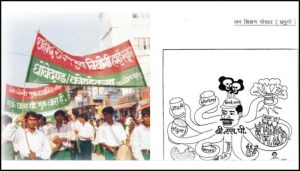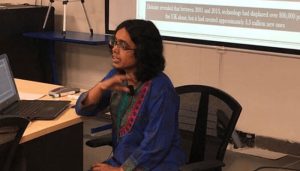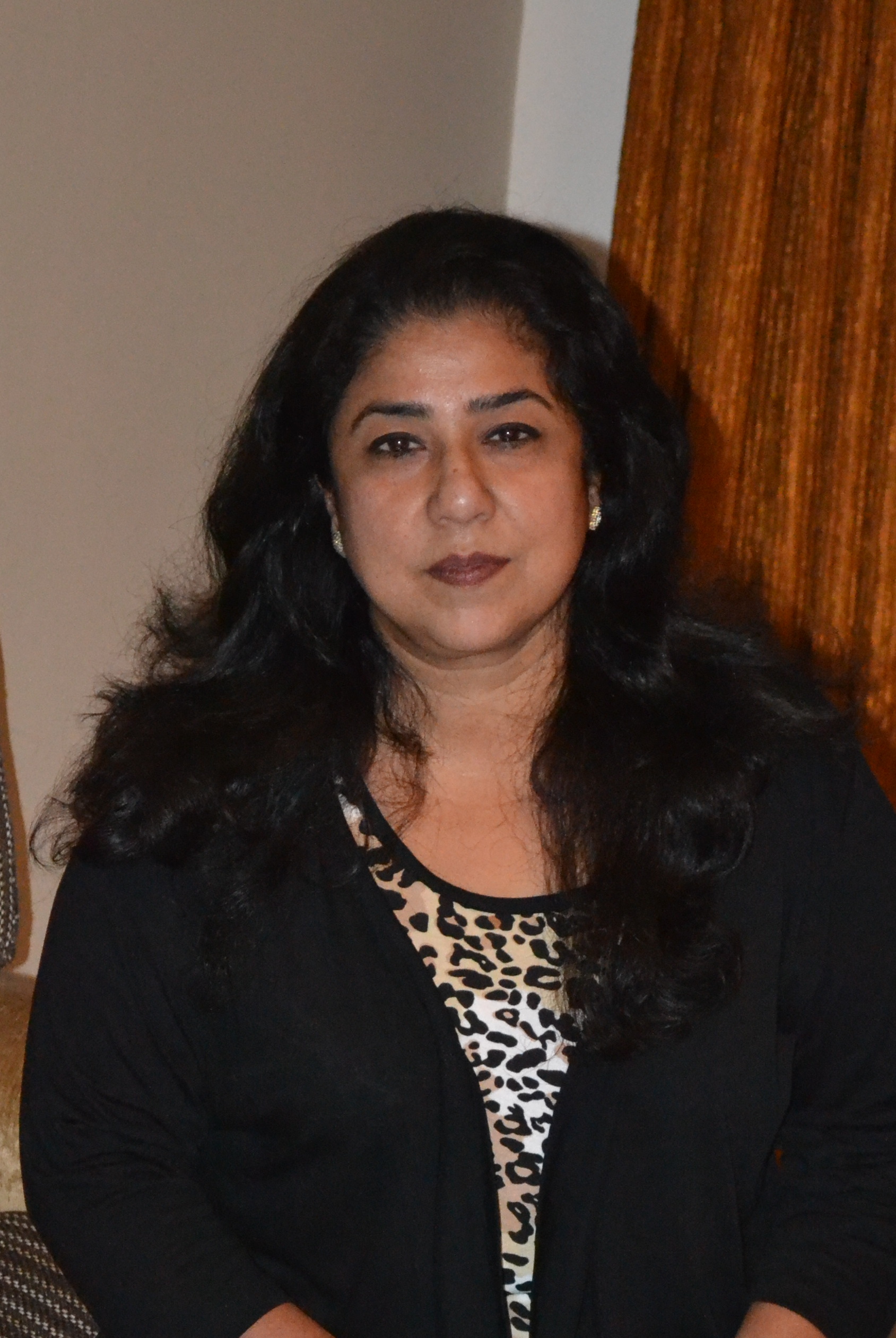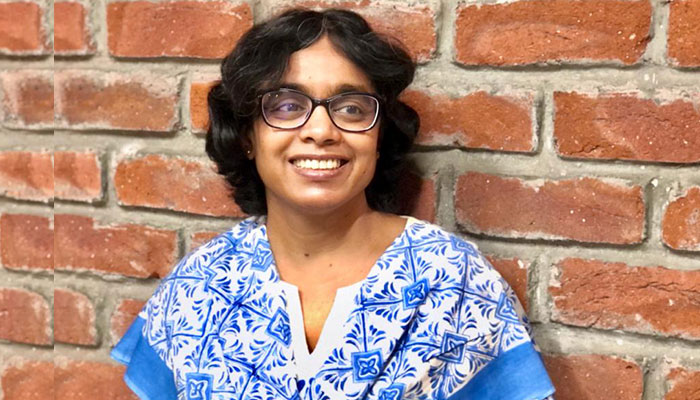IIIT Hyderabad is building an ambitious digital archive of data on evolving social, political and economic phenomena. Radhika Krishnan, an Assistant Professor with the Human Sciences Research Group is connecting the dots and exploring the interface between technological regimes, communities and local ecologies.
A Data Miner with a twist. That’s Radhika Krishnan for you. An electrical engineer from REC Calicut, the researcher left a lucrative career in IT to pursue her core interest in environmental studies and policy, connected to technology studies. Growing up in a bustling Bhilai steel township, surrounded by a rugged terrain, she had a healthy awe of the technological project. But when she joined Wipro as a software engineer, she spent the year conflicted and feeling like a corporate sell-out! “Some of us across Institutes were deeply disturbed by the technological trajectory that India was taking at that point and were concerned about the impact that the Sardar Sarovar project was having on the Narmada river valley, on its communities and ecologies”, she remarked. She remained confused for a couple of years and took a year’s break to find her true purpose; learning Vipassana, visiting organic farms and meditating in the Himalayas.
“When I joined IIITH, I thought my work would centre around my core research area. But it was not quite the confluence of ideologies that I had expected. It turned out to be far more exciting”, says the daring explorer who is currently looking into digital technologies and its impact on political and social development. “We are working on an archive of social data in IIITH, which students can use, to understand social, political and economic phenomena. I am working with students to interpret twitter data, electoral trends, understated social trends and how various important movements in our contemporary politics are playing out in the digital world”. A simple example of this, elaborated Radhika, is the VHF radio collar on tigers and how it has shifted the experience of the tiger, the forest ranger, tourist guide and tourist!
Radhika worked for several years with the Delhi-based research and advocacy group, Centre for Science and Environment (CSE), in the environmental policy domain, before re-entering academia to complete a PhD in science policy. She has been a post-doctoral fellow at the Linnaeus University in Sweden. She was also a Fellow at the Indian Institute of Advanced Study (IIAS) in Shimla.
Digitizing and Archiving social data
“It is a problem of plenty”, claimed Radhika. “There is a massive amount of social data that already exists, from various units of government, like sample surveys and census data. We are trying to make them available in a digitized form and complementing that with new kinds of data that can be easily collated, using computational tools”.
“We began with something that was literally thrown into our lap – the ongoing farm laws issue”, disclosed Radhika. IIITH is digitally archiving the data that is being collected in collaboration with universities in Delhi and Chandigarh. The team will also be following larger political trends, like the Lok Sabha debates and possibly the Vidhan Sabhas in the future.
Bringing together Ecology, Labour and Technology
Radhika’s sense of purpose came together when she joined CSE. It was 8 hard years of gruelling work. “We were a small team of 5 engineers, working on various industrial sectors, collecting huge amounts of data from 25-30 companies at a time. We didn’t use computational tools as much as old school Excel-based computation”, she said with a laugh. “It was my first experience at data analysis; doing cradle to grave environmental assessment of entire sectors; from pulp and paper, to cement and finally to the mining sector”.
“My PhD work pretty much chose me”, observed the young naturalist who started studying the Chhattisgarh Mukti Morcha and brought together many actors connected to environment, labor and technology. “The domain of environmental studies realised way back in the 1970s that India’s environment is not only about tigers and butterflies. You require a certain holistic vision to make sense of what is happening and figure out how different actors are reacting differently to the same phenomena”.

An Indiana Jane in the Wild
“Many of us engineers, who are trained to think of a project from a one-dimensional industrial perspective, are rudely jolted into reality when we go into the field” said Radhika Krishnan. She narrated one particularly menacing situation that she found herself in, while visiting a remote Jharkhand site. “I had been warned not to venture there without help”, she said. Her Adivasi interlocutor had left, to assemble the villagers. “In those 5-7 minutes, I was surrounded by a group of belligerent young men who wanted to know if I was a company representative!”. It is not a simple story of opposing a project for the sake of opposition, she believes. It has to be seen through the lens of social reality, the lack of opportunity, lack of access to resources and dwindling livelihoods.
A hidden trunk of railway secrets
Radhika worked on a very unusual assignment, as a post-doctoral fellow at the Linnaeus University Centre for Concurrences in Colonial and Postcolonial Studies in Sweden. “We gained access to interesting records maintained by Joseph Stephens, an Anglo-Scandinavian contractor who had built a part of the railway network in Maharashtra, in the 1860s.” The contractor had retired to south Sweden after amassing a great amount of wealth in India. More than a century after his death, a trunk was discovered on his estate, that contained a treasure trove of diaries, contracts with railways, stone contractors and masons as well as detailed records of labor payments. “The archive attracted a lot of attention worldwide. Oxford University Press will soon be publishing a collection of our articles”, observed Radhika.
Radhika returned to India and joined the IIAS at Shimla where she worked on converting her PhD into a manuscript. While in Shimla, the opportunity to join IIIT Hyderabad opened up.
Data Mining in a pandemic world
In the summer of 2020, Radhika was slated to begin a classic public policy-sociological study; on how digital technology is influencing political communication and public response. The pandemic struck and her plans went awry. The farm laws and the ensuing farmers’ movement happened in the nick of time and the team shifted their focus to studying how the farmers’ movement was negotiating digital technology and how it was playing out in the digital world.
In an uncertain world, the one thing that gives Radhika a lot of optimism is the Youth. “That is why I love teaching at IIITH. I have a healthy respect for our students, their intelligence, their ability to listen and question”, she observed. “I think this generation has a capacity to perceive the world. They have been pushed to see the world in stark ways and are responding to it, and to me, that’s the biggest thing happening! Whether it is social, environmental or ecological, they are remarkably quick on the uptake and willing to think critically about the world around them”.

Red in the Green
As the pandemic blitzed through the world in 2020, Radhika hunkered down and completed the manuscript for her book ‘Red in the Green: Forests, Farms, Factories and the Many Legacies of Shankar Guha Niyogi’, that studies the alternative narratives emerging from the mines and factory floor in Chhattisgarh and is a continuation of her PhD work on the Chhattisgarh Mukti Morcha and its founder Niyogi. “What piqued my curiosity was that it was one of the rare trade unions in the 1970s and 1980s that took the environment seriously. They came up with technological semi-mechanisation techno-fix solutions, involving workers in the design, that protected jobs and ensured quality, she explained.”
Can technology and social sciences coalesce?
“We need technologists and social scientists to work together to understand this brave new world that we are creating around us”, said Radhika. “IIITH is working towards making this conversation happen and that’s where this institution is different”. Her shots of guidance to IIITHians is this, “You are in a remarkably interesting Institution that allows you the space to do things that you probably won’t get elsewhere. Be curious, be unafraid to ask difficult questions, be self-reflective and be willing to flow against the tide, if need be”.
Of Stress busters and wish lists
“My stress buster is just being in a forest or a quiet place surrounded by trees”, stated Radhika, the itinerant nature lover. She winds down after a hectic day, with a good crime fiction novel or a legal drama on Netflix. As a Tamilian from Palakkad, born in Coonoor and growing up in a cosmopolitan township in Bhilai, Radhika had a pretty unusual upbringing. Being the younger sibling of the famous activist Kavita Krishnan, Radhika recalled that they both shared a deep interest in all forms of life, growing up.
“Today, I see a need for deeper conversations, more sympathy, compassion, patience and tolerance in human beings and that will come from a deep self-reflection of the world around them.” At a more banal level, Radhika wished to see the day when forest conservation is participatory, with local communities seen as preservers and not as trespassers!



Next post